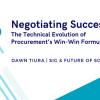Recent research by the UK’s Tech Partnership into the views and opinions of 1,600 employers across the UK concluded that economic growth is being put at risk due to skills gaps in the tech workforce. Employers reported significant problems in recruitment, with 42% of those recruiting tech specialists saying that they were constrained by ‘hard to fill’ vacancies.
Yet, the picture is not universally bleak. The majority of UK universities offer computer science degrees and we are seeing a raft of new technology-focused courses coming on stream. There is a greater sense of the importance of linking academic study in technology-based subjects with future business development, and the government has plans in place to support the development of STEM (science, technology, engineering and mathematics) graduates and apprenticeships.
Businesses themselves often have a critical role to play in this process. The key is the need to be inclusive. In our own sector of highways and infrastructure asset management, we know from experience that it’s not just about offering one-off opportunities to the traditional engineering graduate.
Prospective employees with engineering degrees are of great interest to us of course. But at the same time, we don’t want to be a closed shop and other technology-focused organisations shouldn’t be either. Geography graduates with a focus on GIS, for example, have been very successful working for Yotta in the past. Yet, the attitude and enthusiasm that a candidate displays is often just as important as their qualifications. Technology is moving at such a pace today, that increasingly it’s about attracting people with a genuine enthusiasm and aptitude for innovation and the latest cutting edge developments. At the same time, all of that also has to be tempered by a modern business acumen and focus with a commitment to the organisation.
So, on the one hand businesses need to be open to different kinds of technology-focused talent. On the other, they need to provide an attractive path for their graduate intake rather than just recruiting them directly into the business with little or no support. Increasingly, that means a formal graduate training and recruitment programme. Lots of students in our experience are now looking for a structured process rather than just going out directly into the market and seeking out a job. That’s why we have decided to launch our own training and development programme, targeted at graduates who are focused on innovative technology and excited about its potential to transform the engineering and asset management space.
We believe the benefits for the worlds of business, academia and for the candidates themselves are clear from this more structured approach. Technology-focused organisations and the institutions that support them gain from working closely together to identify and develop more talented employees.
The business gains from having more engaged and committed staff and from being able to train and develop them formally to help fulfil the strategic goals of the organisation. Moreover, the approach also gives the organisation the opportunity to set clear milestones on how staff are progressing through the process.
The graduate trainees gain too, benefitting from the greater structure that a formal development programme provides, not least in being able to follow a clear training syllabus and getting clear feedback on their progress as compared to their peers.
To deliver optimum benefits, these development programmes should ideally also incorporate a rotational element, so that graduates can get a feel of how the business works across multiple departments. It’s about giving them a breadth of experience but it is also a matter of helping both the recruit and the business reach a decision as to what kind of role suits best.
At Yotta, we are increasingly moving away from the perception that we are simply an asset management business. As we look to the future, businesses like Yotta will, of course, continue to need engineering talent, but structured graduate development programmes of the type outlined above will become ever more prevalent as organisations increasingly look to build long-term relationships with new employees, and work in conjunction with them to nurture and shape their professional development. Technology graduates in the future will not just need to understand ‘how things work’, they will also need to know how they can apply that technology to drive business transformation. Ultimately, it will be the businesses that capture this talent and nurture it through structured training and development programmes that will build genuine value and drive competitive edge.






